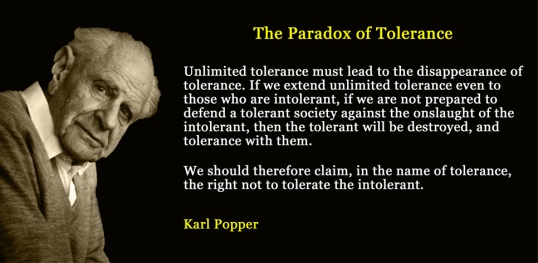The victims of honour culture To Fadime Sahindal, born April 2, 1975, in Turkey, murdered by her own father on January 21, 2002, in Sweden. Culture, identity, ethnicity, gender, and religiosity should never be accepted as a basis for intolerance in political and civic aspects. In a modern democratic society, people belonging to these different groups must be able to rely on society to protect them against the abuses of intolerance. All citizens must have the freedom and right to question and leave their own group. Against those who do not accept this tolerance, we must be intolerant. In Sweden, we have uncritically embraced unspecified and undefined multiculturalism for a long time. If we mean by multiculturalism that there are several different cultures
Topics:
Lars Pålsson Syll considers the following as important: Politics & Society
This could be interesting, too:
Lars Pålsson Syll writes Schuldenbremse bye bye
Lars Pålsson Syll writes Vad historien lär oss
Lars Pålsson Syll writes Krigskeynesianismens återkomst
Lars Pålsson Syll writes From one old guy to another old guy
The victims of honour culture
To Fadime Sahindal, born April 2, 1975, in Turkey, murdered by her own father on January 21, 2002, in Sweden.
 Culture, identity, ethnicity, gender, and religiosity should never be accepted as a basis for intolerance in political and civic aspects. In a modern democratic society, people belonging to these different groups must be able to rely on society to protect them against the abuses of intolerance. All citizens must have the freedom and right to question and leave their own group. Against those who do not accept this tolerance, we must be intolerant.
Culture, identity, ethnicity, gender, and religiosity should never be accepted as a basis for intolerance in political and civic aspects. In a modern democratic society, people belonging to these different groups must be able to rely on society to protect them against the abuses of intolerance. All citizens must have the freedom and right to question and leave their own group. Against those who do not accept this tolerance, we must be intolerant.
In Sweden, we have uncritically embraced unspecified and undefined multiculturalism for a long time. If we mean by multiculturalism that there are several different cultures in our society, this does not pose a problem. Then we are all multiculturalists.
But if we mean that cultural identity and affiliation also entail specific moral, ethical, and political rights and obligations, then we are talking about something completely different. Then we are talking about normative multiculturalism. Accepting normative multiculturalism also means tolerating unacceptable intolerance, as normative multiculturalism implies that the specific cultural groups’ rights may be given higher priority than the citizen’s universal human rights — and thus indirectly become a defence for these groups’ (potential) intolerance. In a normative multiculturalist society, institutions and regulations can be used to restrict people’s freedom based on unacceptable and intolerant cultural values.
Normative multiculturalism, like xenophobia and racism, means that individuals are reduced unacceptably to being passive members of a culture or identity-bearing group. But tolerance does not mean that we must have a relativistic attitude towards identity and culture. Those who, in our society, show in their actions that they do not respect other people’s rights cannot expect us to be tolerant of them. Those who use violence to force other people to submit to a specific group’s religion, ideology, or ‘culture’ are themselves responsible for the intolerance they must be met with.
Society must be intolerant of those who want to force others in our society to live according to their own religious, cultural, or ideological beliefs and taboos. Society must be intolerant of those who want to force society to adapt laws and regulations to their religion’s, culture’s, or group’s interpretations. We should not be tolerant of those who are intolerant in their actions.
If we are to preserve the achievements of a modern democratic society, society cannot embrace normative multiculturalism. In a modern democratic society, the rule of law must apply — and apply to everyone!
